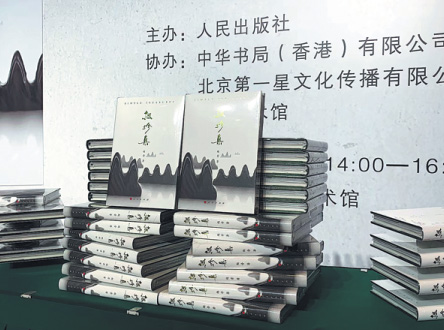Former TV anchor aids traditional arts, crafts
By XING WEN | China Daily | Updated: 2019-07-11 08:29

In an age when people rush through their daily routines, there is less time to appreciate craft work, be it for functional or decorative purposes.
This partly explains why Chinese documentaries such as The Great Shokunin and Masters in Forbidden City, which have turned the spotlight on exquisite works of artisans and their long pursuit of perfection, have caused such a sensation among Chinese viewers in recent years.
Zhao Pu, a former CCTV anchorman, has been helping some craftspeople to pass on their skills to newer generations after he left the State broadcaster in 2015.
In his recently released bilingual book titled Simple Treasures, he writes about his understanding of traditional Eastern aesthetics, respect for artisans and the appreciation for their work in the prose and verse of classical Chinese literature and presents hundreds of pictures of pottery, glass and bamboo work, inked stones, embroidery, tea sets and more.
Brian Bruya, a professor of philosophy at Eastern Michigan University in the United States and also an expert in Chinese studies, is the translator of the English section of Zhao's book.
"Although most of the stories are based on my personal experience, I hope through Bruya's translation, foreign readers will learn how Chinese people today are influenced by our traditional aesthetics," Zhao says.
China's cultural history is both long and rich, and features thousands of years of paintings, poetry, bronze ware, ceramics, tea, music, jade, silk and embroidery, among others, Bruya says. In that sense, Zhao's book offers a good introduction to China for foreign readers.
"It is not just a glimpse through a window but through carved crystal, refracting and reflecting, letting us see the long traditions that continue today and the social milieu in which they are carried on," Bruya writes in the translator's preface.
Zhao's interest in traditional handicraft grew in the year 2000, when he produced the TV documentary Chuan Ren (Successor) that recorded the lives of dozens of artisans then working in the fading field of intangible cultural heritage. After noticing the hardships faced by traditional craftspeople, especially due to the rise of mechanized production methods, Zhao felt he should contribute toward conserving these cultural treasures, especially given his media reach.
























